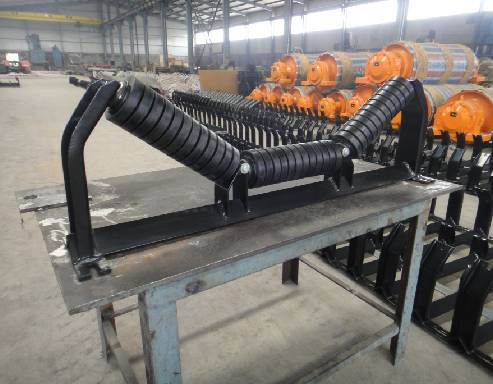 Afrikaans
Afrikaans  Albanian
Albanian  Amharic
Amharic  Arabic
Arabic  Armenian
Armenian  Azerbaijani
Azerbaijani  Basque
Basque  Belarusian
Belarusian  Bengali
Bengali  Bosnian
Bosnian  Bulgarian
Bulgarian  Catalan
Catalan  Cebuano
Cebuano  Corsican
Corsican  Croatian
Croatian  Czech
Czech  Danish
Danish  Dutch
Dutch  English
English  Esperanto
Esperanto  Estonian
Estonian  Finnish
Finnish  French
French  Frisian
Frisian  Galician
Galician  Georgian
Georgian  German
German  Greek
Greek  Gujarati
Gujarati  Haitian Creole
Haitian Creole  hausa
hausa  hawaiian
hawaiian  Hebrew
Hebrew  Hindi
Hindi  Miao
Miao  Hungarian
Hungarian  Icelandic
Icelandic  igbo
igbo  Indonesian
Indonesian  irish
irish  Italian
Italian  Japanese
Japanese  Javanese
Javanese  Kannada
Kannada  kazakh
kazakh  Khmer
Khmer  Rwandese
Rwandese  Korean
Korean  Kurdish
Kurdish  Kyrgyz
Kyrgyz  Lao
Lao  Latin
Latin  Latvian
Latvian  Lithuanian
Lithuanian  Luxembourgish
Luxembourgish  Macedonian
Macedonian  Malgashi
Malgashi  Malay
Malay  Malayalam
Malayalam  Maltese
Maltese  Maori
Maori  Marathi
Marathi  Mongolian
Mongolian  Myanmar
Myanmar  Nepali
Nepali  Norwegian
Norwegian  Norwegian
Norwegian  Occitan
Occitan  Pashto
Pashto  Persian
Persian  Polish
Polish  Portuguese
Portuguese  Punjabi
Punjabi  Romanian
Romanian  Russian
Russian  Samoan
Samoan  Scottish Gaelic
Scottish Gaelic  Serbian
Serbian  Sesotho
Sesotho  Shona
Shona  Sindhi
Sindhi  Sinhala
Sinhala  Slovak
Slovak  Slovenian
Slovenian  Somali
Somali  Spanish
Spanish  Sundanese
Sundanese  Swahili
Swahili  Swedish
Swedish  Tagalog
Tagalog  Tajik
Tajik  Tamil
Tamil  Tatar
Tatar  Telugu
Telugu  Thai
Thai  Turkish
Turkish  Turkmen
Turkmen  Ukrainian
Ukrainian  Urdu
Urdu  Uighur
Uighur  Uzbek
Uzbek  Vietnamese
Vietnamese  Welsh
Welsh  Bantu
Bantu  Yiddish
Yiddish  Yoruba
Yoruba  Zulu
Zulu Efficient Solutions for Handling and Transporting Plastic Pipe with Rollers
The Importance of Plastic Pipe Rollers in Modern Construction
In the realm of modern construction and plumbing, the use of plastic pipes has become increasingly prevalent. These pipes offer various advantages, such as lightweight properties, resistance to corrosion, and ease of installation. However, managing and installing these materials requires specialized equipment to ensure efficiency and precision. Among these tools, plastic pipe rollers play a crucial role, streamlining the handling and movement of plastic pipes during various stages of construction and installation.
What Are Plastic Pipe Rollers?
Plastic pipe rollers are specialized devices designed to facilitate the movement of plastic pipes, particularly in construction sites and plumbing installations. They are typically made from durable materials that can withstand significant weight and pressure while offering low friction to allow for smooth movement. These rollers can come in different shapes and sizes, accommodating various pipe diameters and lengths to suit specific project requirements.
Benefits of Using Plastic Pipe Rollers
1. Easier Handling One of the primary advantages of plastic pipe rollers is that they significantly reduce the effort required to lift and move heavy pipes. By allowing pipes to roll rather than be dragged or lifted off the ground, workers can minimize the risk of injury and fatigue during long hours on the job site.
2. Enhanced Efficiency In construction, time is of the essence. The use of plastic pipe rollers enables faster maneuvering and positioning of pipes, which can lead to improved project timelines. Workers can move materials more quickly and efficiently, resulting in labor cost savings and higher overall productivity.
3. Protection of Materials Plastic pipes, while durable, can be susceptible to scratches, dents, or other damages if not handled properly. Rollers provide a protective mechanism that prevents direct contact between pipes and rough surfaces. This not only helps preserve the integrity of the pipes but also ensures that they remain in optimal condition for installation.
4. Versatility Plastic pipe rollers come in various designs tailored to different applications. From simple manual rollers to more complex mechanical or electric versions, these tools can adapt to various pipe sizes and job requirements. Thus, contractors can choose the best solution based on their specific needs.
plastic pipe rollers

Key Features to Look For
When selecting plastic pipe rollers for a project, several features should be considered
- Load Capacity It's essential to choose rollers that can handle the weight of the specific types and sizes of pipes you will be working with. Overloading rollers can lead to accidents and equipment failure.
- Material Quality Since rollers are used in construction settings, they should be made from high-quality, durable materials resistant to wear and tear.
- Ease of Use Look for rollers that are straightforward to set up and operate. Features such as ergonomic handles and lightweight designs can greatly enhance usability.
- Compatibility Ensure that the roller is compatible with the specific types of plastic pipes in your project, as different materials may require different handling techniques.
Conclusion
In conclusion, plastic pipe rollers are an indispensable tool in the construction and plumbing industries, aiding in the efficient and effective handling of plastic pipes. Their ability to enhance safety, efficiency, and material protection makes them a must-have for any contractor or construction team. As the demand for plastic pipes continues to grow due to their numerous benefits, understanding the vital role of pipe rollers will be essential for ensuring successful and smooth project execution. Investing in quality plastic pipe rollers can lead to significant returns in terms of productivity and material preservation, making them a worthwhile consideration for any construction project. In essence, they not only contribute to a safer work environment but are also crucial in meeting the increasing demands of modern building practices.
-
Revolutionizing Conveyor Reliability with Advanced Rubber Lagging PulleysNewsJul.22,2025
-
Powering Precision and Durability with Expert Manufacturers of Conveyor ComponentsNewsJul.22,2025
-
Optimizing Conveyor Systems with Advanced Conveyor AccessoriesNewsJul.22,2025
-
Maximize Conveyor Efficiency with Quality Conveyor Idler PulleysNewsJul.22,2025
-
Future-Proof Your Conveyor System with High-Performance Polyurethane RollerNewsJul.22,2025
-
Driving Efficiency Forward with Quality Idlers and RollersNewsJul.22,2025





























